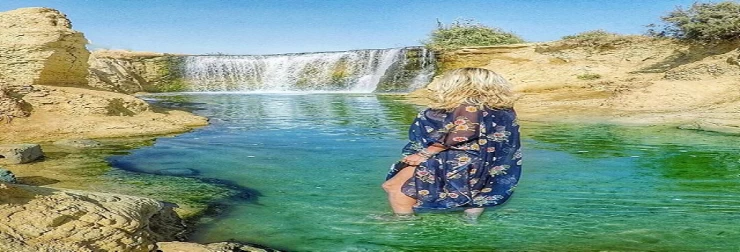
Shali Fortress in Siwa Oasis
Shali Fortress: The Heart of Siwa Oasis
Located within Egypt's Western Desert stands Shali Fortress, which goes by the name Shali Ghadi to demonstrate the innovative spirit and tremendous endurance of the Siwan people. During the 13th century, Siwans built their defensive cultural centre in the form of this mud-brick citadel, which is situated in the Siwa Oasis.
Origins and Architecture
Construction of Shali took place in 1203 CE through the utilization of kershef, which combines salt with mud and clay substances supported by palm wood reinforcement. The climate of the arid desert matched this building method, yet the structure remained weak during rainy seasons. The fortress builders selected this commanding location because it offered both defensive capabilities against attackers while also providing wide visibility from its rock formation position. The Siwan people built Shali with their Berber architectural heritage visible through its winding streets, layered dwellings, and protective walls.
Decline and Abandonment
Throughout many centuries, Shali acted as Siwan's centre of activity. The curb structures of the fortress received catastrophic damage from an unprecedented three-day storm in 1926, which resulted in the permanent discarding of Shali. Shali shifted from an inhabited village after locals moved to settlements across the nearby plains, thus allowing the building complex to fall apart due to weather conditions. Although in a state of disrepair, the fortress stood out as a major physical marker, which showed the deep historical heritage of this oasis.
Restoration and Cultural Significance
Restoration activities started in the early first decade of the new millennium after authorities acknowledged its important historical and cultural legacy. The conservation initiatives between 2010 and 2020 succeeded in stabilizing major parts of Shali, together with limited restoration, which aimed to protect its special architecture as well as develop sustainable visitor traffic. Visitors now make the cultural fortress their destination for experiencing the diverse historical heritage of Siwan.
Visiting Shali Today
People who stop by Shali Fortress can obtain authentic views of historical times. Through visiting its maze of corridors with dilapidated towers, visitors gain an understanding of the typical routines of people who previously inhabited it. Views of the surrounding oasis gain spectacular beauty when sunset beams gold light upon the fortress ruins of Shali. Tourists can explore two essential sites in the area, which consist of the Temple of the Oracle of Amun, which anointed Alexander the Great as a deity, and the Mountain of the Dead, which features tombs from the 26th Dynasty period.
Plan Your Visit
Siwa Oasis lies 560 kilometres away from Cairo, and visitors can access it through the road system. Visitors find the period spanning October through April to be the optimal time to experience Siwa Oasis because its temperate climate prevails during this season. Eco-lodges and traditional guesthouses in the area provide visitors a chance to experience authentic Siwan culture as local lodging options.
Use travel guides or communicate with specialized Siwa Oasis tour operators based in Egypt to obtain additional information regarding Shali Fortress along with Siwa Oasis.
Siwa is the most isolated of all Egyptian Oases located on the borders between Egypt and Lybia, about 350 kilometers far from the Mediterranean coast in the heart of the Sahara desert.
The Shali Fortress is an old fortress in Siwa Oasis that you can visit when you travel from Cairo to Siwa Oasis, it is one of the unique tourist attractions that you can visit on Siwa Oasis Trip from Cairo.
Many tourists come from all over the world to visit it as it has many kinds of attractions to enjoy during your Egypt Travel Packages or while having your Cairo Day Tours such as the natural water warm water springs, which are used for natural treatment and historical sights such as the Temple of the Oracle, Temple of Amun, and the Mountain of the Dead.
In the center of Siwa, the ruins of the fortress of Shali of the 13th Century are imposed. Constructed from a material known as a kerchief, "(a mixture of salt rocks from the salt lakes of the region and clay). was built to protect the inhabitants from Bedouin attacks. Interestingly, with just one heavy rain in the year 1936, Shali began to crumble.
On the way up there is the entrance of a mosque that was the only original building of the renovated Shali. Along the way there are also handicraft and fabric shops, all very original and different from those found in the rest of Egypt, it is worth visiting for those who want to bring souvenirs of this unique region.

















